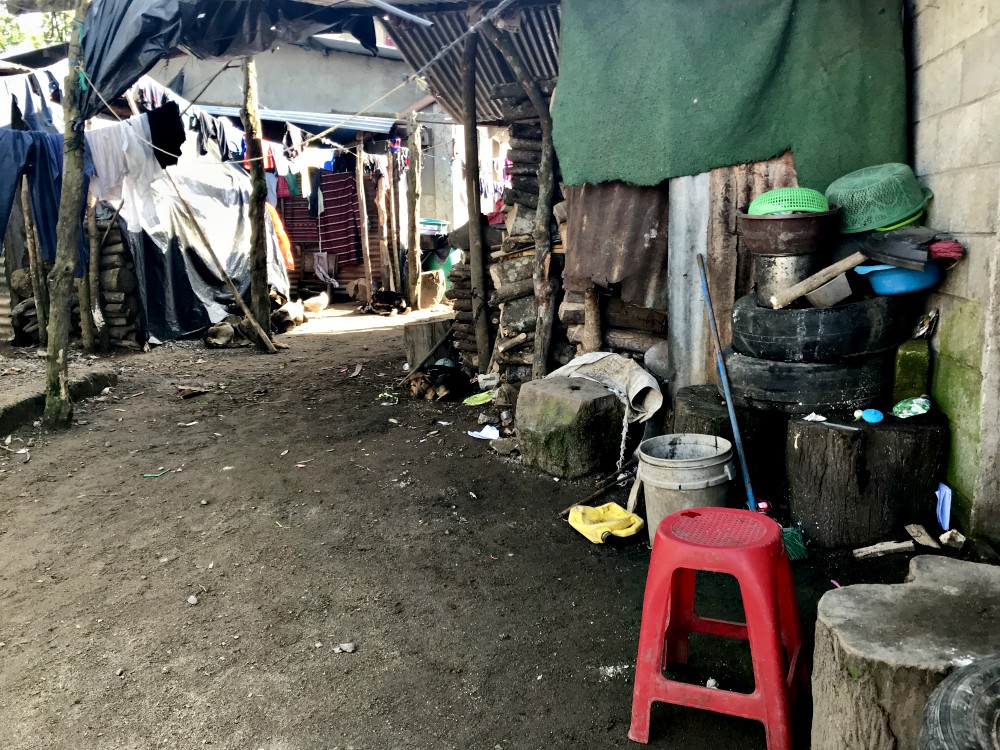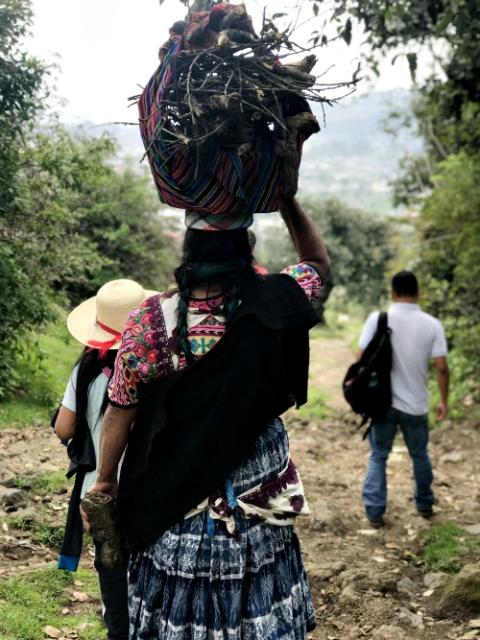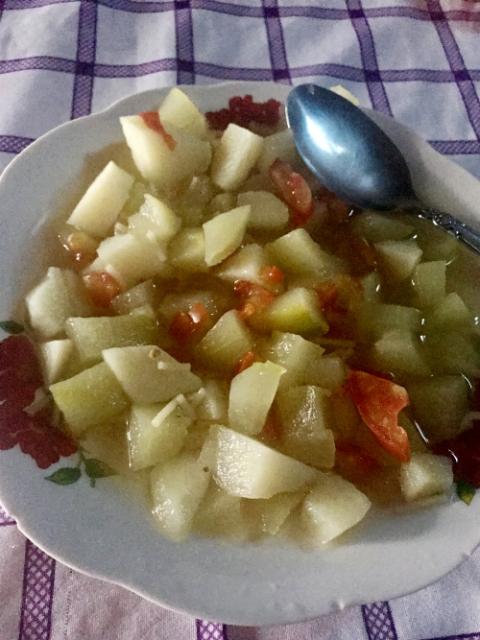
Outside the family compound in Nuevo San José, Sacatepéquez, Guatemala (Provided photo)
"¿Quieres más comida?" Do you want more to eat?
How many times have our hosts asked us this question? How many times have we passed bowls of food around a table? It happens every time we sit around a table and share a meal.
The question was familiar, but the location was new. I was sitting in a small house constructed with plywood and metal. I sat on the only chair the family had, while Señora María*, my host mother, made fresh tortillas over the wood fire stove while chickens and dogs ran freely in and out of the house. I was in Señora María's house in Nuevo San José, Sacatepéquez, Guatemala. It was my first meal with Señora María and her seven children. I was eating a simple meal of soup and tortillas with agua caliente (hot water) to drink.
During my six weeks studying Spanish in Guatemala, I had the opportunity to spend a week at La Escuela de la Montaña in Sacatepéquez. It is a partnership school with Proyecto Lingüistico Quetzalteco, which is located in the city of Quetzaltenango. La Escuela de la Montaña is located in the rural communities of Nuevo San José and Fátima.
Most language schools in Guatemala, like Proyecto Lingüistico Quetzalteco, are in cities such as Guatemala City, Quetzaltenango or Antigua, while La Escuela de la Montaña represents an "attempt to take some of the benefits of the language school industry more directly into the countryside of Guatemala."

An indigenous woman and her daughter collect firewood to heat their house and cook. (Provided photo)
The communities of Nuevo San José and Fátima were formed after campesinos fought for fair wages and just conditions on the coffee fincas (plantations). After they were kicked off the fincas, many campesinos stayed together and formed these communities. Their resilience, strength and determination infused the school with a remarkable spirit.
Furthermore, La Escuela de la Montaña is in a unique position to support the communities by providing income to women and scholarships to local children. Their mission felt like a natural extension of my community's mission to "share in Jesus' mission of bringing more abundant life to God's people, especially the poor, by responding to the needs of the times."
During orientation on our first night, the student coordinator suggested that we "learn how to be in community with each other and with the people here." I nodded in agreement. Community, I knew how to do that.
What I was not prepared for were the ways in which my heart would be stretched and broken open each day. After a decade spent working with refugees and immigrants and traveling to other countries, I did not expect to be challenged by the poverty. I did not expect to initially move so cautiously through Señora María's home as I raised my eyebrows at the dirt floors and the lone lightbulb in the house. During the first meal with Señora María's family, I was embarrassed by how much I yearned for my comfort zone and quietly planned to eat quickly before returning to the school.
But, that night, as I reflected on the day, I heard the student coordinator's suggestion again. "Learn how to be in community." This would be my challenge and hardest lesson.

Simple meal shared with the family (Provided photo)
Each meal, I returned to Señora María's house and sat at the same table. With each plate of tortillas and each game of tag and tic-tac-toe, I felt the imaginary barrier between myself and Señora María's family disappear. I let Señora María welcome me into her family and into her home. I felt at ease answering 100 questions from the kids, chatting about our similar beliefs, and catching a stray chicken as it jumped on the table.
But, perhaps more importantly, I felt the energy and urgency of the vows I professed as a Sister of the Humility of Mary. I reflected on the last lines of my vows, "I will strive to share the love of Jesus through the message of the Gospels and the witness of my life."
I realized that the only way to authentically live this out was to let Señora María welcome me into her life and her family. I needed to be fully present to life with her family. I needed to let them be a conduit of Jesus' love to me.
On Saturday morning, during my last meal with the family, I smiled as Señora María asked me the same question. "¿Quieres más comida?" I welcomed another helping of mosh as we talked about the bus ride back to Quetzaltenango. I realized that this question is about more than food. La lucha, or the daily struggle, permeated everything in these communities. La lucha begs us to pay attention and asks us to be a part of it. It is an invitation to share life, to move beyond comfort zones, and to intentionally form community with one another.
* Name changed to protect privacy.
Advertisement
[Eilis McCulloh is a Sister of the Humility of Mary. She is a student at the University of Akron, Ohio. She is on the board of Akron Interfaith Immigration Advocates and co-chair of the Family Support Community.]





